Vas Narasimhan, CEO, Novartis
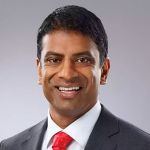 “Our thinking is, how do we create a protease inhibitor that could work on future coronaviruses, not just the current coronavirus?…Fundamentally, our ability to withstand pandemics is likely going to center around our ability to think of this more as a defense topic than a health topic.”
“Our thinking is, how do we create a protease inhibitor that could work on future coronaviruses, not just the current coronavirus?…Fundamentally, our ability to withstand pandemics is likely going to center around our ability to think of this more as a defense topic than a health topic.”
As CEO of one of the largest pharmaceutical companies in the world, Vas Narasimhan knows what a unique moment in history this is. That’s why he’s spending hundreds of millions of dollars in research and development to attack COVID-19 from a variety of angles. Among these are protease inhibitors, monoclonal antibodies, and “glue degraders” that help dissolve critical proteins in the virus.
As one of the world’s largest producers of hydroxychloroquine, they are also watching ongoing testing of that antimalarial drug. If the tests show it to be safe and effective, Novartis is ready to donate 130 million doses to start, and more if needed. For a company that last year produced more than 72 billion doses of medicine for nearly 800 million patients, ramping up to a global scale is a challenge Narasimhan and his company are eager to accept.
Download the Transcript
Robert Bradway, Chairman and CEO, Amgen
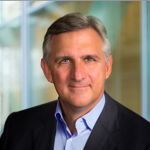 “This is, of course, unlike anything any of us have experienced before. This synchronous global shutdown caused by what is a pretty tricky virus—a virus that had a head start on all of us. But we’re gaining ground fast.”
“This is, of course, unlike anything any of us have experienced before. This synchronous global shutdown caused by what is a pretty tricky virus—a virus that had a head start on all of us. But we’re gaining ground fast.”
Under Robert Bradway’s leadership, Amgen is aggressively pursuing SARS-CoV-2 on a number of fronts. Some of their efforts build on past successes, focusing on antibodies and the immune system. Another looks to the small island nation of Iceland for genetic clues about the virus’s mutations and spread.
Bradway holds true to the credo to first do no harm as he thinks about the many other patients who rely on Amgen’s life-saving medicines: “We need to make sure that while we’re responding to COVID-19, we’re not doing it at the expense of all these other patients, or we’re going to create a secondary healthcare crisis that we never intended and that we could have prevented by striking that balance.”
Download the Transcript
Jeff Skoll, Founder and Chairman, Skoll Foundation, The Jeff Skoll Group, Participant, and Capricorn Investment Group
 “About a month ago in the US we had about a thousand confirmed cases; today we have about 600,000. The developing world is very much on that same pathway.”
“About a month ago in the US we had about a thousand confirmed cases; today we have about 600,000. The developing world is very much on that same pathway.”
Jeff Skoll knows pandemics. More than a decade ago he launched an organization whose current name reflects its mission: Ending Pandemics. Skoll, who once served as eBay’s first president, also sounded the alarm (presciently, it now seems) when he produced the 2011 film Contagion, which anticipated the global upheaval caused by a pathogen originating from a wet market half a world away.
From his years studying what could go wrong with a virus like COVID-19, Skoll clearly sees the challenges ahead: “We literally need something like 22 million tests a day to truly open up the country and be safe,” the soft-spoken Canadian tells Mike. “And cumulatively, I believe that there are no more than 22 million tests that have been done all over the world.”
Download the Transcript
Rick Scott, US Senator; former Governor of Florida
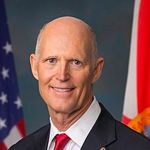 “If we do anything to get this economy going again, make it easy for the entrepreneurs in this country.”
“If we do anything to get this economy going again, make it easy for the entrepreneurs in this country.”
As two-term governor of Florida, Rick Scott led his state through crises including hurricanes, mass shootings, and the Zika virus. Now, as a US Senator, he’s helping see the nation through COVID-19. While the roles are different, Scott’s philosophy is the same: he spends his days listening and helping people solve their problems.
A champion of small business and entrepreneurship, his focus today is on reopening the nation safely, and he’s identified the immediate challenge: “The biggest thing we’ve got to chip away at right now, I think, is we’ve got to figure out this testing…because it’s going to be hard to get this economy going without it.”
Harry Reid, Former US Senator
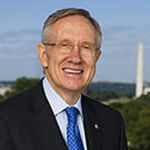 “At this stage, we have to recognize that there’s going to be some downtime here. But I think that with the experience we’ve had around the country, especially in New York, it’s something we can handle.”
“At this stage, we have to recognize that there’s going to be some downtime here. But I think that with the experience we’ve had around the country, especially in New York, it’s something we can handle.”
Senator Harry Reid knows about handling adversity. Born during the Great Depression, he grew up in a shack in Searchlight, Nevada with no indoor toilet, telephone, or hot water. He fought—literally, as an amateur boxer—to earn money to advance himself. As a law student at George Washington University, he moonlighted as a gun-carrying security guard at the US Capitol Building. Reid never forgot his humble beginnings, which may be why he has always championed the underdog.
In this episode, the man from Searchlight talks about his life and accomplishments in the healthcare sector including the doubling of the NIH budget, the creation of the National Center for Advancing Translational Sciences (NCATS), and most famously, his shepherding and eventual passage of the Affordable Care Act.
Download the Transcript
Steve Ballmer, Founder, USAFacts; former CEO, Microsoft; Co-Founder, Ballmer Group; Chairman, Los Angeles Clippers
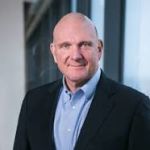 “There is an information-collection problem from the counties, which is where most of the data lives. We’ve got a team that literally goes through both by hand and using technology. … one of the things I’d say we’re very proud of is being able to help CDC with some of that.”
“There is an information-collection problem from the counties, which is where most of the data lives. We’ve got a team that literally goes through both by hand and using technology. … one of the things I’d say we’re very proud of is being able to help CDC with some of that.”
In 1980, Steve Ballmer left Stanford’s MBA program to become Microsoft’s 30th employee. Thirty-four years later, he retired as CEO and promptly channeled his formidable energy into a variety of interests, including USAFacts.org, which makes government data accessible and understandable.
In the current crisis, he is quick to quantify just how important one response will be to many Americans: “In this country, 60% of families earn less than $66,000 a year. So these $1,200 checks plus appropriate increases for presence of children in the home are highly, highly relevant to restarting the economy.”
Judy Faulkner, Founder and CEO, Epic
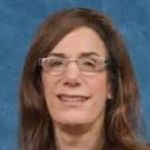 “We do have a culture of ownership, of working hard, of wanting to be heroes helping heroes. That’s one of the things you hear our staff say.”
“We do have a culture of ownership, of working hard, of wanting to be heroes helping heroes. That’s one of the things you hear our staff say.”
The story is familiar, even mythic: brilliant young student builds out a new technology in her garage and changes the world. But Judy Faulkner never made it to Silicon Valley. The medical software company she founded in a Madison basement four decades ago remains in Wisconsin—while Epic’s importance to the world of health care continues to grow.
More than 250 million patient medical records are on the Epic platform, and that data could yield valuable clues in the search for solutions to the pandemic. It’s all part of the employee-owned company’s mission to support the heroes on the front lines.
Susan Desmond-Hellmann, Former CEO, Bill & Melinda Gates Foundation; former Chancellor, UCSF; former President of Product Development, Genentech
 From serving as a frontline physician treating HIV patients in Uganda, to overseeing new therapies for a leading biopharma company, to running a renowned health sciences university, to heading the world’s largest philanthropy – Sue Desmond-Hellmann has seen it all.
From serving as a frontline physician treating HIV patients in Uganda, to overseeing new therapies for a leading biopharma company, to running a renowned health sciences university, to heading the world’s largest philanthropy – Sue Desmond-Hellmann has seen it all.
It’s little surprise, then, that when she surveys the current pandemic she sees possible solutions across a range of areas. Her conversation with Mike Milken covers broad topics including how to build a durable and effective public health infrastructure as well as deeply specific issues such as whether interleukin-6 inhibitors might be able to prevent the eventual cause of most COVID-19 fatalities – the phenomenon known as cytokine storms.
She also points to signs that make her hopeful, including a major consortium launched at UCSF: “This is such a good example of a multi-lab, multi-investigator scientific collaboration where people are just going as fast as they can together, putting competition to the side.”
Download the Transcript
Jo Ann Jenkins CEO, AARP
 “It is that American spirit and willingness to give of oneself to make life better for others that is behind everything that we do at AARP.”
“It is that American spirit and willingness to give of oneself to make life better for others that is behind everything that we do at AARP.”
Since taking the helm of the largest nonprofit for Americans 50 and older, Jo Ann Jenkins has built a culture of community among her staff, 60,000 volunteers, and her organization’s 38 million members. Recently, this has been made easier by the fact that years ago she implemented powerful two-way communication infrastructure for her employees that could be quickly repurposed to include her constituents. Now, AARP hosts massive, weekly tele-townhall calls that help its members navigate today’s unique challenges.
That’s just one way Jo Ann continues to advance her idea of the American spirit. She adds, “In the last two weeks, we’ve trained over 900 people who have said, I’m willing to pick up the phone and make a call to someone that I don’t even know, to just check on them.”
Carmine Di Sibio, Global Chairman and CEO, EY
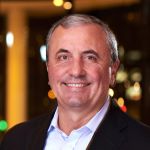 “We’ve stressed to all our people and in particular our partners around the world that now is the time they really needed to be close with their clients, help them in any way they can, whether large clients, small clients and so forth, including doing work pro bono to make sure that they’re surviving longer term.”
“We’ve stressed to all our people and in particular our partners around the world that now is the time they really needed to be close with their clients, help them in any way they can, whether large clients, small clients and so forth, including doing work pro bono to make sure that they’re surviving longer term.”
For EY’s 300,000 global employees – including 25,000 in China – the coronavirus pandemic has highlighted what it means to serve clients as trusted advisors and help them navigate an uncertain world. For Carmine Di Sibio, it’s also meant seeing to the wellbeing of a massive, global and highly mobile workforce.
As EY’s global chairman and CEO, Di Sibio has perhaps one of the most expansive views of how this situation is affecting organizations in every sector and geography. And to understand where we are and where we’re headed, he needs only look inside EY, which he views as “a little microcosm of the world.”
Tempus/Groupon’s Eric Lefkofsky
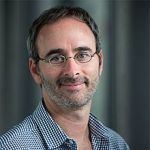
“Today, if somebody’s positive for COVID-19, it still doesn’t tell you what’s likely to happen next. And what we’re trying to do by combining clinical and molecular data is really be able to predict what’s likely to happen to them next.”
When Groupon founder Eric Lefkofsky’s wife was diagnosed with cancer, he found the lack of data maddening. Outside of her hospital it was the 21st century, but once he passed through the doors he felt he was being ushered two or three decades into the past.
He launched Tempus to change that. The company analyzes vast pools of genetic data to find and develop therapeutics for conditions ranging from cancers to major depressive disorder. He’s especially frustrated at the lack of progress in the current crisis. “We now have in this country over 400,000 patients who have tested positive for COVID-19,” he tells Mike. “Where is that data? Why don’t we have that data in one central place?”
For Lefkofsky, the promise of personalized medicine means finding and developing the right medicine for the right patient at the right time. Today, any of us may be the next patient, and the clock is ticking.
Margaret Hamburg, Foreign Secretary, National Academy of Medicine; Former Commissioner, U.S. Food and Drug Administration
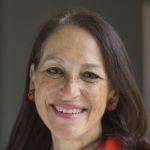 “I always said it was a question of when, not if, we would have to combat a global pandemic. But I never really thought I’d be watching it play out in real time.”
“I always said it was a question of when, not if, we would have to combat a global pandemic. But I never really thought I’d be watching it play out in real time.”
Margaret “Peggy” Hamburg has devoted her life to elevating the best in public health while anticipating the worst. As New York City Health Commissioner, she curtailed the spread of tuberculosis. She served as senior scientist for the Nuclear Threat Initiative. After the attacks on the World Trade Center, she redoubled her efforts to help create a world safe from chemical and biological weapons. And, as one of the longest-serving FDA commissioners, she modernized food safety regulations and implemented the Tobacco Control Act. Forbes magazine named her one of the world’s most powerful women.
Despite the current crisis she remains optimistic, noting how quickly scientists were able to sequence the genome of the virus and share it with the world. “We have to realize that with a global pandemic, we are truly all in it together.”
Download the Transcript
A Conversation with Eric Schmidt, Former Alphabet CEO
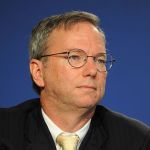
“We’re going to need … some kind of shock treatment for seven, eight, nine days where we shut down everything to stop the spread…. And when I say shut down, I mean shut down.”
That’s Eric Schmidt’s bold plan to put a stop to the pandemic so we can start to return the nation to some semblance of normalcy. Schmidt, who led Google from a startup to one of the largest and most influential companies in the world, now chairs the Defense Innovation Advisory Board, part of the US Department of Defense.
Post-crisis, Schmidt sees opportunities for positive change. One example: with millions of students ushered into remote learning, Schmidt suggests we “see if we can actually get remote learning better than traditional learning.”
And he offers a simple but powerful reminder of his industry’s role in our lives: “Think about how bad this pandemic would be if you didn’t have the internet.”
Download the Transcript
A Conversation with Andy von Eschenbach, President, Samaritan Health Initiatives Inc.; former Commissioner, U.S. Food and Drug Administration; former Director, National Cancer Institute
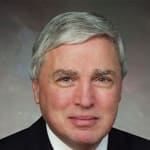 In this edition, Mike is joined by Andrew von Eschenbach, President of Samaritan Health Initiatives Inc. A former commissioner of the United States Food and Drug Administration, von Eschenbach is a urologist and oncologist who—along with numerous other prestigious roles—was selected by George W. Bush to head the National Cancer Institute in 2001.
In this edition, Mike is joined by Andrew von Eschenbach, President of Samaritan Health Initiatives Inc. A former commissioner of the United States Food and Drug Administration, von Eschenbach is a urologist and oncologist who—along with numerous other prestigious roles—was selected by George W. Bush to head the National Cancer Institute in 2001.
Given his impressive resume, von Eschenbach was instrumental in helping Mike establish the Prostate Cancer Foundation. Here, the longtime collaborators draw on von Eschenbach’s years of extensive research to discuss potential solutions to the COVID-19 crisis.
Download the Transcript
A Conversation with Lynn Goldman
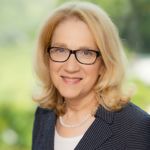 Joining Mike on this episode is Lynn Goldman. A pediatrician and epidemiologist, Goldman is the former assistant administrator for the Office of Chemical Safety and Pollution Prevention at the US Environmental Protection Agency, and the current Dean of the Milken Institute School of Public Health at George Washington University.
Joining Mike on this episode is Lynn Goldman. A pediatrician and epidemiologist, Goldman is the former assistant administrator for the Office of Chemical Safety and Pollution Prevention at the US Environmental Protection Agency, and the current Dean of the Milken Institute School of Public Health at George Washington University.
With such an in-depth knowledge of epidemiology and related public policy, Goldman has been extremely busy in recent weeks. In her conversation with Mike, she describes how her faculty and students are working to protect the public during the COVID-19 crisis, while stressing the importance of increased testing and vaccine development.
A Conversation with Alex Gorsky, Chairman and CEO of Johnson & Johnson
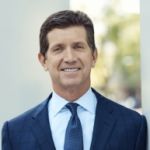 Mike Milken speaks with Alex Gorsky, chairman and CEO of Johnson & Johnson. On March 30, 2020, Johnson & Johnson and the Biomedical Advanced Research and Development Authority (BARDA) announced a $1 billion partnership to accelerate testing of a lead vaccine candidate for COVID-19.
Mike Milken speaks with Alex Gorsky, chairman and CEO of Johnson & Johnson. On March 30, 2020, Johnson & Johnson and the Biomedical Advanced Research and Development Authority (BARDA) announced a $1 billion partnership to accelerate testing of a lead vaccine candidate for COVID-19.
Alex shares about Johnson & Johnson’s efforts to rapidly scale the company’s manufacturing capacity to supply one billion vaccines worldwide for emergency pandemic use in 2021—and to do so on a nonprofit basis so the vaccine is affordable and widely available.
Download the Transcript
A Conversation with Arie Belldegrun, MD Allogene Therapeutics
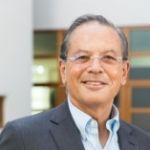 Mike speaks with Arie Belldegrun, an oncologist and businessman who has built several biopharmaceutical companies over the past three decades. Both Arie and his wife Rebekah recently recovered from their positive diagnoses of COVID-19, though it presented very differently in each of their cases.
Mike speaks with Arie Belldegrun, an oncologist and businessman who has built several biopharmaceutical companies over the past three decades. Both Arie and his wife Rebekah recently recovered from their positive diagnoses of COVID-19, though it presented very differently in each of their cases.
Bringing together his years of research and personal experience with the virus, Arie discusses the role the immune system plays in both protecting the body from, and preparing it to fight against, the virus, as well as how we can apply our learnings from cancer and other clinical research in our approach to COVID-19.
Download the Transcript
A Conversation with Rod Hochman, MD Providence St. Joseph Health
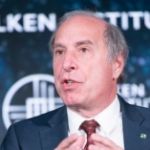 Mike Milken speaks with Rod Hochman, Chair-Elect Designate for the American Hospital Association and President & CEO of Providence St. Joseph Health, the third-largest healthcare system in the United States. With 51 hospitals, 1,000 clinics, and 120,000 front line caregivers across the 7 western states, the Providence St.Joseph team in Seattle successfully identified and treated the very first case of COVID-19 in the United States back in January.
Mike Milken speaks with Rod Hochman, Chair-Elect Designate for the American Hospital Association and President & CEO of Providence St. Joseph Health, the third-largest healthcare system in the United States. With 51 hospitals, 1,000 clinics, and 120,000 front line caregivers across the 7 western states, the Providence St.Joseph team in Seattle successfully identified and treated the very first case of COVID-19 in the United States back in January.
Rod shares what they’ve learned from their time on the front lines fighting the virus, as well as the steps they’ve taken to prepare their facilities, protect their caregivers, and conserve valuable PPE in order to contain cases to a level that has, thus far, been manageable.
A Conversation with Francis Collins MD, Ph.D. National Institutes of Health
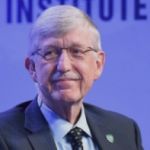 Mike’s first guest on the podcast is Francis Collins, Director of the National Institutes of Health (NIH). Collins is a physician-geneticist noted for his landmark discoveries of disease genes and pioneering work with the Human Genome Project. As Director of NIH, he oversees the largest biomedical research agency in the world.
Mike’s first guest on the podcast is Francis Collins, Director of the National Institutes of Health (NIH). Collins is a physician-geneticist noted for his landmark discoveries of disease genes and pioneering work with the Human Genome Project. As Director of NIH, he oversees the largest biomedical research agency in the world.
Although he’s heeding COVID-19-related advice by working from home, Collins is still “trying to light a fire under any kind of opportunity here to speed up the process of identifying effective treatments and vaccines and making sure our clinical trials are ready and tuned up.”









